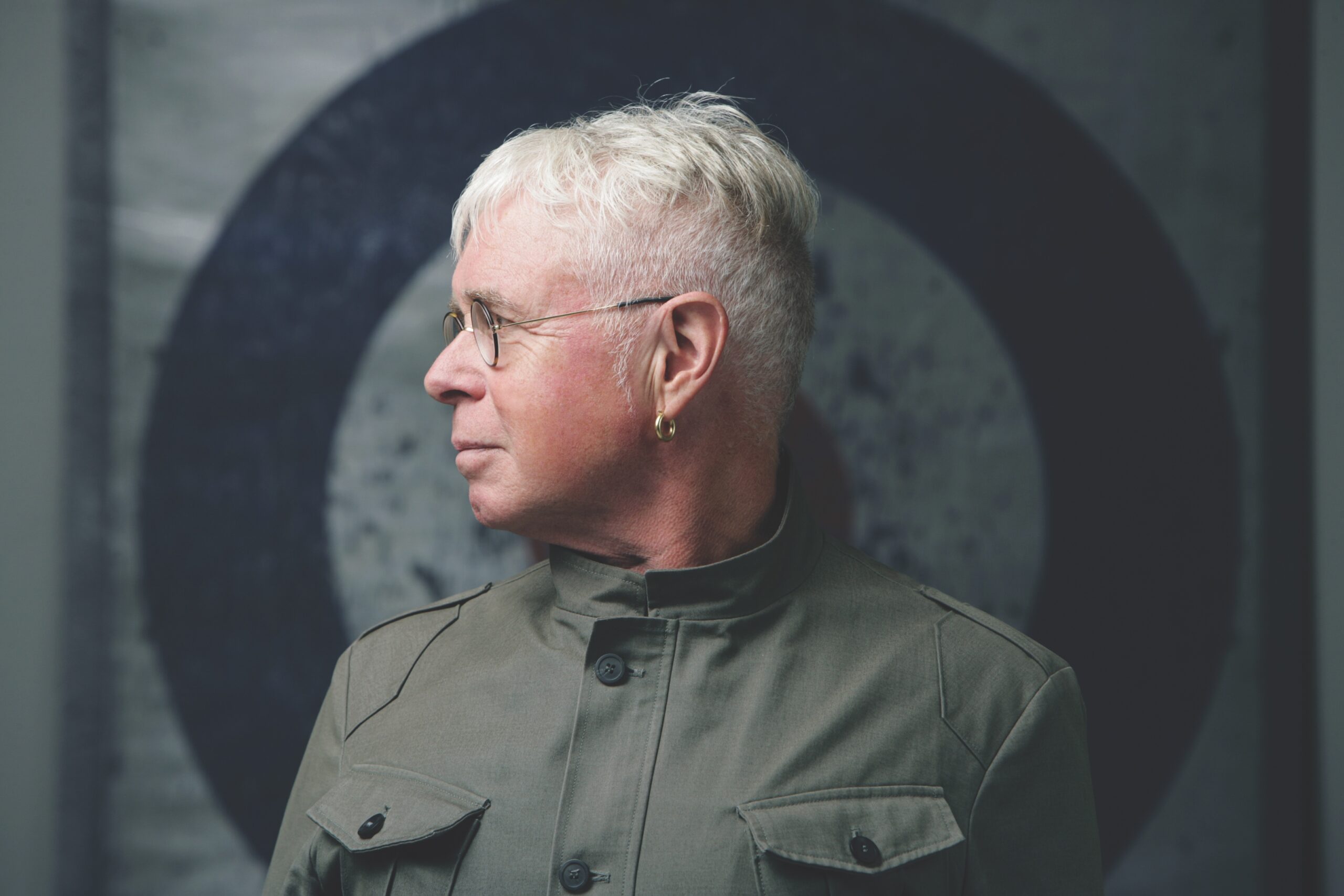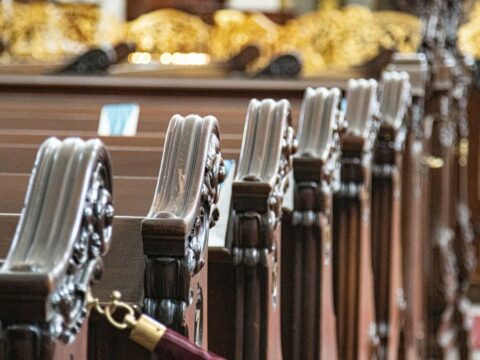Bruce Cockburn, the Canadian singer and songwriter, recently released his memoir, Rumours of Glory. He spoke with Mardi Tindal from his home in San Francisco.
Mardi Tindal: You gave your memoir the same title as one of your songs, Rumours of Glory. What does that title say about your religious journey?
You may unsubscribe from any of our newsletters at any time.
Bruce Cockburn: I’ve certainly gone through different perspectives on the whole issue of God and Jesus and what it is to be a seeker. I think what that song is attempting to portray is the hint of God — “rumours.”
The hints are around us all the time, yet we tend not to see evidence of God’s presence as readily as it’s presented. At least I don’t. But once in a while it hits you, and this song was triggered by what’s described in the first verse. I was in New York, looking up between the buildings at the part of the sky that was visible, at dusk in winter. It was crossed by two vapour trails, and they were lit by the setting sun, which wasn’t visible because it was behind the buildings.
The streets were darkening and filling with people coming out of their jobs. It was that — the contrast between the relatively grumpy-looking crowd of people leaving work and trying to get on the subway, the grit of New York streets, and then this glorious image in the sky. It seemed like one of those hints.
As a title for the book, it’s ironic more than anything. My career has been pretty good, but is it glorious? I’m not glorious enough to be featured in the tabloids.
MT: You write that the Catholic mystic Thomas Merton has influenced you. Merton embodied a spirituality of paradox, as do you. You say you’re living your life as best you can in line with the word of Christ, and yet you’re not necessarily taking that word as gospel. You say that praying in the company of others can be nurturing, and yet question the value of religious worship or affiliation.
BC: I see a pattern full of that contrast. It’s full of ambiguity and dichotomy and slipperiness. Just look at people in any context — it could be at a cocktail party or a worship service or a war. You’ll see all this stuff going on. There’s beauty and grace, and there’s spite and ugliness. What I see is that God’s there in that relationship. It’s for me to be open to him and receptive. That’s what I work at. A long time ago, when I was new to the game so to speak, the forms [of religion] were valuable. I still like ritual, but the ritual has to be about that relationship to God.
MT: Much of this seems beyond words at all.
BC: I think there’s a trap inherent in taking words at face value. Sometimes that’s what you have to do, and it’s appropriate, but other times you have to read the heart of the person speaking and look past the actual words. If I hear a minister preaching, I have to try to hear past the literal words if I’m going to take him seriously. I’m not saying that the words don’t matter, because they do. But if you want to know whether or not to admit those words into yourself, you need to feel the heart of the person delivering them. It’s about the relationship with God.
MT: You describe your early days in The United Church of Canada in your book, and tuning in to a sermon when you were 10 or 11 and noticing that the minister was talking about “real stuff” — “he was nailing something.”
BC: I was sitting there with my parents and had my pad of paper and my pencil, getting ready to occupy myself during the sermon. For some reason, that day I listened to [the minister] speak, and it really made sense to me. In this case, I don’t think I was looking past the words. I was looking at the words for the first time, and grasping that it wasn’t just a guy up there telling you to wash your hands and pray or whatever.
Another powerful experience was my acquaintance with Peter Hall, the organist at Westboro United [in Ottawa], who taught me theory and piano. He was a real mentor, helping me appreciate music and get deeper into it.
Then in the 1980s and ’90s, through my travels and connections with charitable work in various parts of the world, I was aware that the United Church was very active and very outspoken on some issues I thought were really important. The United Church has stood out as an agent for positive social change.
MT: You’ve said that people who maintain a relationship with the Divine bear a special burden of healing. How do you see that call of Christ today?
BC: There are some obvious worldly examples. How do you exercise compassion and forgiveness to ISIS, for example? I have trouble with that. I want to kill them all, but I don’t think that’s what I’m supposed to do. That’s probably the most extreme example.
I feel like the world’s getting screwier and screwier and there’s a kind of entropy taking hold. The challenge is to respond to that increasing madness from a godly base.
It’s tricky. That one-to-one relationship with God becomes really important, although it can get off balance too. People do all kinds of horrible things thinking that God told them to do it. So you need some community around you to bounce off, to keep you moving in the right direction.
MT: How do you maintain that relationship with the Divine?
BC: I struggle with a lack of trust, which I didn’t know back in the day. When I was a more active churchgoer, I felt like I had a pretty solid faith. But I had a conversation with a Presbyterian minister friend of mine who said, “Do you believe in an all-powerful, all-seeing God?”
I said, “Yeah, I do, but I don’t trust him. I don’t want to be available to him, because he’s going to ask me to do [things] I don’t want to do.” This is a totally wrong-headed way to think about it, but this is my default position, and I struggle with that. I’m winning, little by little — or God’s winning. It’s getting better. The period of doubt I’ve gone through has been an exercise in going deeper.
I’ve been doing Jungian-based dream work for a long time, and through it I’ve come to find myself; I’m able to feel love from God and receive it. MJ [my wife] recently started going to a Pentecostal church, but it doesn’t conform to my previously held stereotype of a Pentecostal church. It’s full of spirit and brains and fun, a real sense of joy. I was shocked to discover this and finally let MJ persuade me to go with her. Then I got invited to play with the band. So I go now and sit in the church band as a guitar player. It’s an unfolding process.
MT: You’ve had a lot of labels in your day — including psalmist and prophet.
BC: And some less complimentary ones!
MT: Which seem to fit now?
BC: You know, I’m just a guy trying to live. I don’t have a convenient label for myself, but I can look with hindsight and see prophetic bits in the songs. I’ve written three songs since the book came out, and the most recent is a gospel song. So where is that going? I don’t know. Part of the job of being human is just to try to spread light, at whatever level you can do it. Songs are one level, and it’s not simple. You can spread light with dark songs, because they invite people to notice and respond to what’s around them. They are invitations to look.
This interview has been condensed and edited.
***
This story first appeared in The United Church Observer’s June 2015 issue with the title “‘Part of the job of being human is to try to spread light.’”












